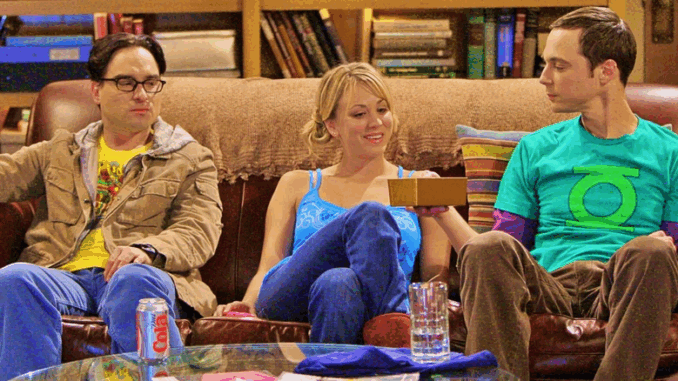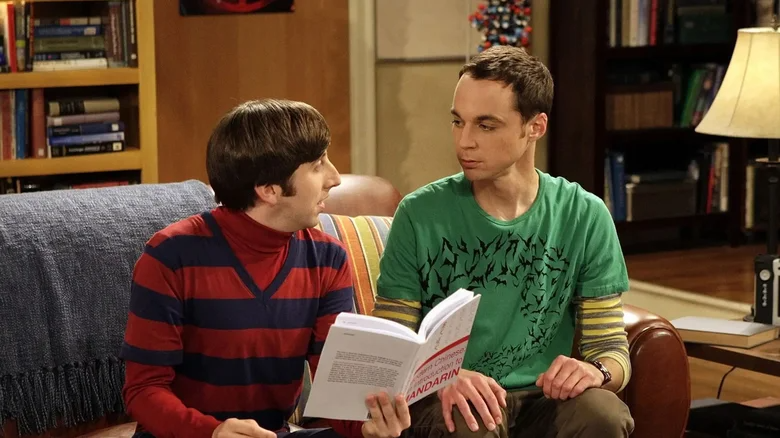
The entertainment industry has faced many hurdles over the years, but one of the most significant disruptions in television history was the 2007-08 Writers’ Strike. This strike was an unprecedented event, halting TV production across the nation for months. The Hollywood writers went on strike to demand better pay and residuals, primarily due to the rise of digital content and streaming platforms. For many shows, this created a massive challenge as they faced unfinished storylines, cancelled episodes, and disrupted production schedules. But amid the chaos, The Big Bang Theory not only survived but came out stronger.
The writers’ strike didn’t just impact TV shows — it changed the landscape of television production. However, The Big Bang Theory, a show that was still in its infancy at the time, found ways to adapt and overcome this challenge. Let’s explore how this iconic sitcom survived the disruption and thrived despite the setback.
1. The 2007-08 Writers’ Strike: A Major TV Crisis
In November 2007, the Writers Guild of America (WGA) went on strike against the major Hollywood studios. The primary issue was how writers were compensated for their work in an era where digital content, like online streaming and digital downloads, was rapidly growing. Writers were no longer getting the same residuals as before, which they argued was unfair given the new revenue streams. The strike lasted until February 2008, and during this period, the production of most TV shows came to a halt, including many of the most popular ones at the time.
For shows like The Big Bang Theory, the strike posed a significant threat. The show was still in its early seasons, and the writers’ room was just starting to build the chemistry and storylines that would make the show a household name. The question on everyone’s mind was: would The Big Bang Theory survive, or would it be another casualty of the writers’ strike?
2. The Impact of the Strike on The Big Bang Theory
While many TV shows scrambled to rewrite storylines or deal with a lack of content, The Big Bang Theory had a unique challenge to face. It had only just premiered in September 2007, meaning it was still a relatively new show without a deep pool of content. The writers’ strike meant that the planned episodes for its first season were cut short, and the production team had to find a way to make do with limited scripts.
For a show like The Big Bang Theory, which relied on well-written, witty dialogue and character development, the lack of writers was a serious concern. Many other shows faced long production delays, but The Big Bang Theory faced a unique dilemma: Would it be able to keep its momentum, or would the break in production cause it to lose its audience?
3. The Smart Decision: Extending the Pilot’s Success
When the writers’ strike halted production, one of the key strategies used by The Big Bang Theory was to extend the first season. The producers and network executives realized that the show had potential, but they needed to preserve the momentum that had already been established. As a result, the episodes already filmed before the strike were strategically aired, and the network capitalized on the success of the pilot episode.
The show’s viewership had been solid, but with fewer episodes airing, it gave the network and the production team time to strategize on how to handle the loss of momentum. By holding back the remaining episodes and waiting for the strike to end, the show gave itself the opportunity to return with new material that would pick up where it left off.

4. Returning Stronger After the Strike
When the strike ended in February 2008, The Big Bang Theory was in a prime position to continue its story. The strike had taken a toll on many shows, but The Big Bang Theory came back with a sense of anticipation and curiosity around it. With the brief hiatus, the show was able to return to fresh content, which helped it build momentum that was sustained through the rest of the season.
In fact, when the writers returned to work, they quickly went to work on creating new material for the show’s remaining episodes. One of the key elements of the show’s success after the strike was the fact that it didn’t try to rush things. Instead, the writers took the time to develop stronger character arcs and refine the show’s humor, which ultimately paid off.
5. The Resilience of The Big Bang Theory’s Cast and Crew
Another factor that played a major role in The Big Bang Theory‘s success after the strike was the resilience of its cast and crew. The actors, many of whom were relatively unknown at the time, kept their spirits high during the hiatus and continued promoting the show through various media channels. This kept the buzz alive and gave fans hope that the show would return stronger than ever.
The chemistry between the actors also played a huge role in keeping the show intact. From the very beginning, The Big Bang Theory had a natural rhythm between the main characters, and even during the brief break, this chemistry continued to grow, helping to cement the show as a fan favorite.
6. Leveraging the Success of the Pilot Episode
The writers’ strike meant that there was a delay in producing new episodes, but the first few episodes of The Big Bang Theory had already done their job. The pilot episode had been a massive success, receiving positive reviews from critics and viewers alike. By the time the show returned from the strike, the fanbase had already been established, giving the producers the confidence they needed to push forward.
The show’s success wasn’t just due to the acting — it was about the timing. The strike created a unique situation where The Big Bang Theory’s hiatus actually built anticipation. When it came back with new episodes, viewers were eager to see what happened next.
7. How the Writers’ Strike Helped Define The Big Bang Theory‘s Future
The brief halt in production may have seemed like a setback at the time, but in hindsight, it may have been just what the show needed. The extra time between seasons gave the writers the chance to reflect on the direction they wanted to take the show, allowing for stronger storylines, more character development, and a clearer vision of where the show was headed.
Moreover, the strike ultimately helped define The Big Bang Theory’s future by building an even stronger fan following. Fans who had been eagerly waiting for new episodes came back to find a show that had grown in its absence — both in quality and in popularity. This helped lay the foundation for The Big Bang Theory‘s future as one of the longest-running and most successful sitcoms in TV history.
8. The Writers’ Strike and the Evolution of TV Production
The 2007-08 Writers’ Strike wasn’t just about The Big Bang Theory’s survival — it was a pivotal moment for the entire television industry. The strike forced producers to rethink the way they approached TV show production and content creation. Digital streaming and other distribution channels became even more important, changing the way shows were financed and distributed.
For The Big Bang Theory, the strike served as a reminder of how important it was to maintain a balance between producing content for traditional TV networks while also evolving with new technology. This shift in TV production helped The Big Bang Theory remain relevant and maintain a strong fanbase for years to come.
Conclusion
The 2007-08 Writers’ Strike could have spelled disaster for The Big Bang Theory, but instead, it gave the show a chance to refine its vision, develop stronger characters, and build a loyal fan base. By making strategic decisions during the hiatus, the show came back stronger and more popular than ever. In the end, the strike proved to be a pivotal moment in the series’ journey, one that helped establish The Big Bang Theory as a staple in TV comedy and solidified its place in television history.
FAQs
1. How did the writers’ strike affect The Big Bang Theory?
The writers’ strike forced The Big Bang Theory to halt production, shortening its first season and delaying new episodes. However, this break allowed the writers to refine storylines and develop stronger character arcs, which helped the show gain even more popularity once it returned.
2. Did the writers’ strike impact other TV shows as much as The Big Bang Theory?
Yes, many other shows were significantly impacted by the strike, with production delays, shorter seasons, and incomplete storylines. However, The Big Bang Theory managed to survive the disruption and came back stronger, due to its strong early success.
3. What role did the cast play in the success of The Big Bang Theory during the strike?
The cast played a crucial role in maintaining fan interest during the strike by promoting the show and keeping the buzz alive. Their chemistry and commitment to their roles helped keep the show relevant during the hiatus.
4. How did the writers’ strike influence the evolution of television?
The strike led to changes in the way TV shows were produced, especially with the rise of digital platforms. This shift in production methods helped shape the future of TV shows, including The Big Bang Theory, which continued to adapt and thrive in the new digital era.
5. Was The Big Bang Theory able to recover after the strike?
Yes, the show recovered brilliantly after the strike, returning with strong episodes that solidified its place as one of the most popular sitcoms on
